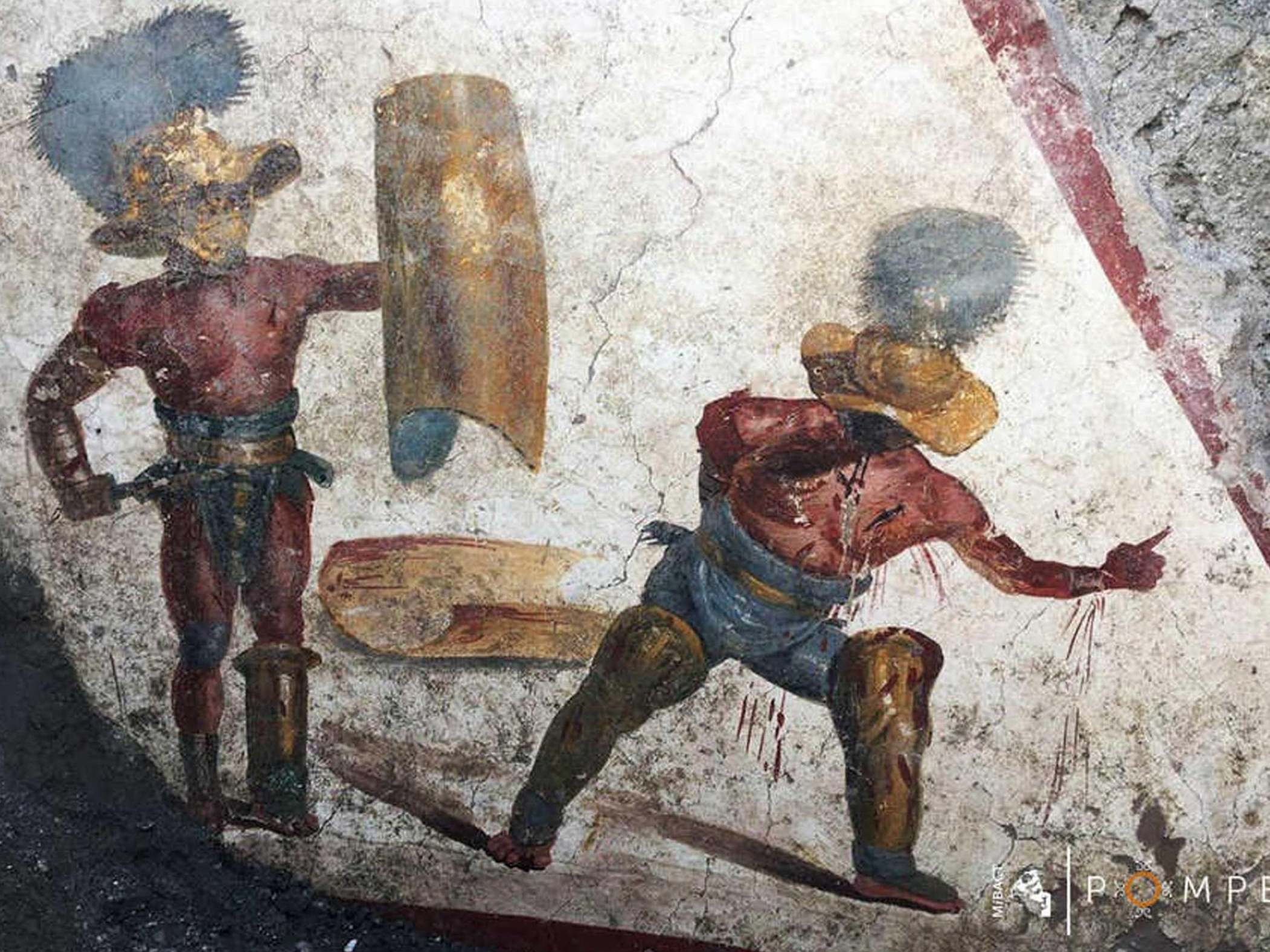Ancient images of gladiators unearthed at city of Pompeii
‘Of particular interest is the very realistic representation of wounds’

Your support helps us to tell the story
From reproductive rights to climate change to Big Tech, The Independent is on the ground when the story is developing. Whether it's investigating the financials of Elon Musk's pro-Trump PAC or producing our latest documentary, 'The A Word', which shines a light on the American women fighting for reproductive rights, we know how important it is to parse out the facts from the messaging.
At such a critical moment in US history, we need reporters on the ground. Your donation allows us to keep sending journalists to speak to both sides of the story.
The Independent is trusted by Americans across the entire political spectrum. And unlike many other quality news outlets, we choose not to lock Americans out of our reporting and analysis with paywalls. We believe quality journalism should be available to everyone, paid for by those who can afford it.
Your support makes all the difference.Archaeologists have uncovered a well-preserved fresco of two fighting gladiators in the ancient Roman city of Pompeii.
It depicts two gladiators in action, one wielding a short sword, the other cowering as blood spurts from wounds all over his body.
The defeated soldier is lifting his finger to beg for mercy.
Dario Franceschini, Italy’s culture minister, said the discovery showed Pompeii was “an inexhaustible mine for research and knowledge for archaeologists”.
The city is undergoing a new phase of excavation, the “Great Pompeii” project, funded by the European Union and Italy. It has already unearthed villas decorated with frescoes and mosaics as well as the remains of human skeletons trapped beneath the rubble.
The fresco was found in what had been a basement that could have been used as a shop, and there may have been a tavern and brothel above.
The painting, which is 1.5 metres wide, suggests the place was frequented by gladiators.
It was found at Regio V, 54-acre site near an archaeological park not yet open to the public.
A fresco depicting the mythological hunter Narcissus admiring his own reflection in a pool was discovered in February.
“It’s very probable that this place was frequented by gladiators,” said Massimo Osanna, director-general of Pompeii’s archaeological park.
“Of particular interest in this fresco is the very realistic representation of wounds on the wrist and chest of the unsuccessful gladiator … we don’t know the outcome of the fight, he could have died or was given grace.”
Join our commenting forum
Join thought-provoking conversations, follow other Independent readers and see their replies
Comments